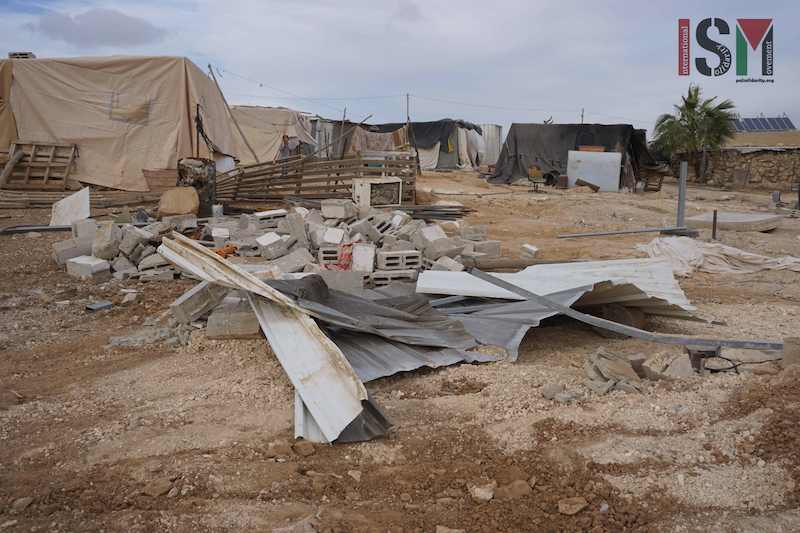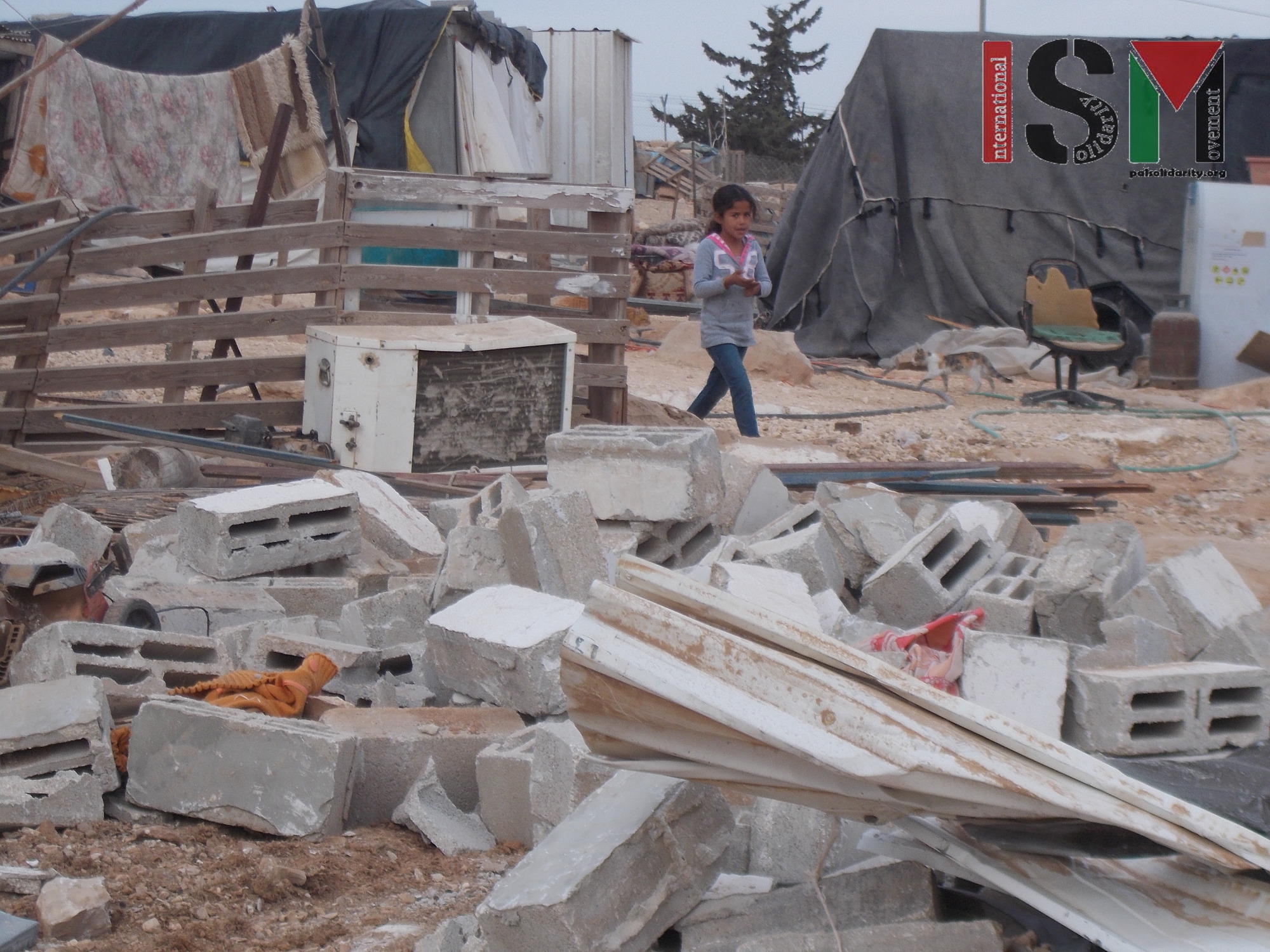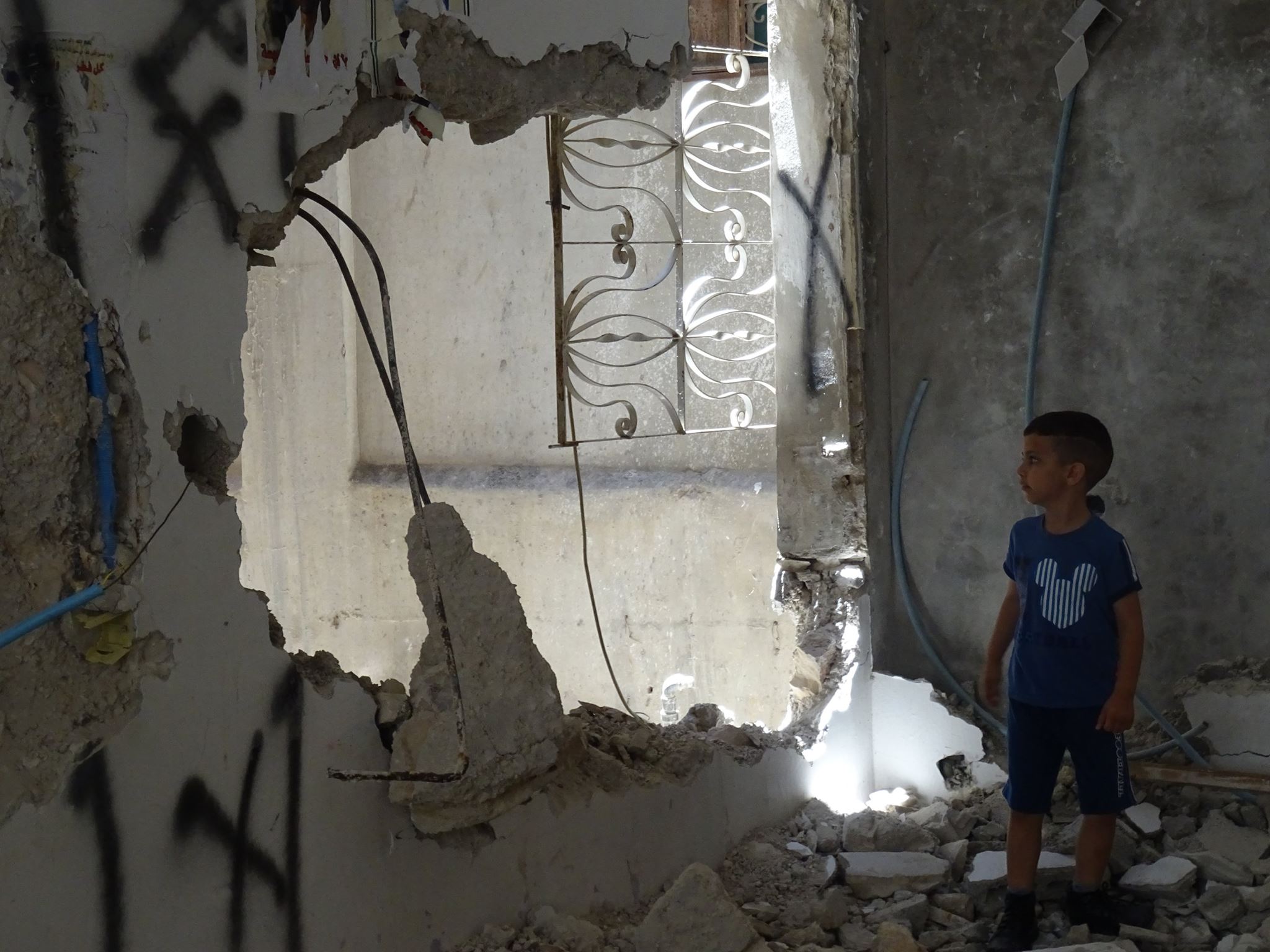Tag: Demolition
-
Yet another demolition hits Umm Al Khair; community continues to stand strong
19th of November 2016 | International Solidarity Movement, al-Khalil team | Umm al-Kheir, south Hebron Hills, occupied Palestine On November 15th, the Bedouin community of Umm Al Khair experienced the fifth wave of demolitions by Israeli forces on their structures to take place in the past year. The most prominent of the two structures demolished…
-
Nothing is simple in Palestine
17th November 2016 | International Solidarity Movement, al-Khalil team | Umm al-Kheir, occupied south Hebron Hills Almost nothing in Palestine is what you expect for the most part. And, this is so true of the negative things you see. No matter how bad you think things are or expect them to be, you are almost…
-
Israeli military demolishes two houses, injures five Palestinians with live ammunition in Qalandia Refugee Camp
7th July 2016 | International Solidarity Movement, al-Khalil team | Qalandia Refugee Camp, occupied Palestine The holy month of Ramadan has come to an end. But in Palestine, as in Iraq, Syria, Turkey and too many other places, Muslim families are not able to enjoy this special time of the year in peace and comfort.…



